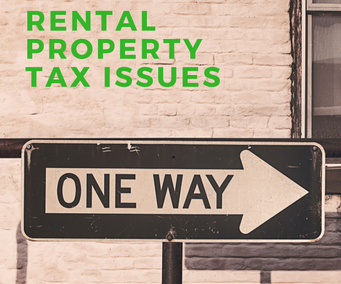Becoming a landlord is a very exciting thing for a lot of people. While you report your rental income in your T-1, remember to take a look at the GST/HST issue on your rental property. If you, as a landlord, fail to collect the GST/HST on the rent, the Canada Revenue Agency (“CRA”) will have no hesitation to take the GST/HST out of your portion of the rent.
Let’s go back to the basic.
As a rule of thumb, there is NO GST collectable from the rental of a residential house, a residential trailer or a residential condo or apartment. The reason is simply because the supply of the residential property is the GST/HST exempt , according to the CRA. As a result, the GST/HST paid by the landlords on repairs, condo fees, renovations cannot be recovered. So, make sure this is not being ignored when you set your rent.
However, things may change. If you start to rent the property to businesses, then you need to collect the GST/HST when the annual taxable revenue exceeds $30,000. And the benefit is obvious, as a landlord, you are able to recover the portion of the cost through claiming the input tax credit.
Tax rules are always complex.
In the case of residential property rental, the GST/HST must be collected when the rental the particular residential unit that is occupied continuously by the same tenant for at least one month or the rent for the residential unit does not exceed $20 per day. In real life, a lot of people rent out their space through Airbnb . Those rentals are subject to the GST/HST from this perspective.
How about vacation properties? It is common that people own two properties these days. One for permanent residence and the other is for vacation property. Vacation properties are sometimes rented out to cover cash flow shortage. Revenue from short-term vacation property rentals is subject to the GST/HST as well. However, for revenue less than $30,000 a year, it is not required to register for the GST/HST. As a result , landlords don’t need to charge the GST/HST. One thing that you may have to pay attention to is the concept of “association” in tax rules. What it means is the $30,000 threshold is being shared with “associated” corporations controlled by the same person. If the taxable rental revenue does not exceed $30,000, you may be better off choosing not to register and claim ITC. The reason is that a small supplier is required to collect tax on a taxable sale of real property.
When it comes to a mix of properties that landlords collect and do not collect the GST/HST, for example , it is a building with 2 apartments and one business place on the first floor, the GST/HST required to be collected on the commercial places but not on the apartment. On the expenses side, a reasonable allocation of expenses incurred must be done based on the nature of the rentals (either business or residential). So that ITC on the proportional share of expenses can be recovered through the GST/HST return.
Happy rental!

Just seen this great article if you are ready to plan your holidays for next year. Have a look, its good to know.
We were going to put in an offer on a three year old rental cottage
Then we found out that we have to pay 5% of the purchase price gst
This does not seem right as in the fact that when you rent you would be charging get in the room
Patricia, GST issues are never be that easy to handle. Generally speaking, an individual who purchases a vacation property is required to pay the GST/HST on the purchase of the property. In order to recoup your GST paid up-front, you may be better off registering for the GST/HST before putting down the offer? Consult professionals if you are not sure about your tax. A very good question.